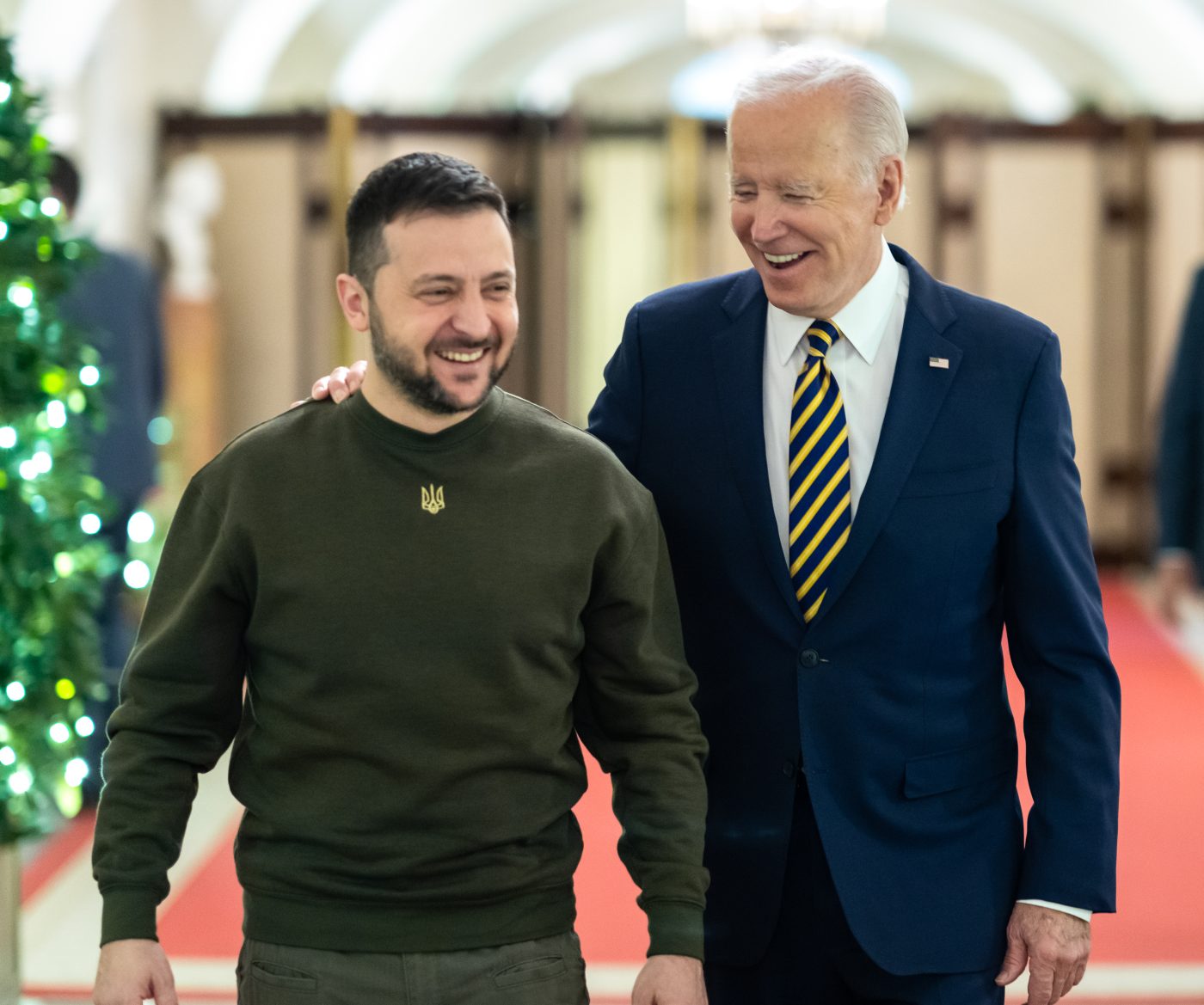It is hard to think how President Volodymyr Zelenskyy’s December 21 visit to Washington could have gone better. He had a long and frank conversation with President Biden at the White House, along with the full national security team.
The Biden Administration announced a further $1.85bn in military aid (drawn down from funds approved by Congress last summer) including for the first time the Patriot air defense system. Meanwhile, Congress was in the process of increasing the Biden Administration’s request for a new $38bn in assistance to Ukraine up to $45bn and approving legislation to use seized Russian oligarch assets for Ukrainian assistance.
In his address to a joint session of Congress, Zelenskyy spoke directly to the American people – thanking them for their support, explaining that Ukraine is defending us all from Russian imperialism, that it is therefore fighting on behalf of the free world, and urging America to stay the course as the war is far from over.
Comparisons to British Prime Minister Winston Churchill’s wartime addresses to Congress in December 1941 and May 1943 were rampant. Despite making this comparison, however, few commentators seemed to grasp that — just as with Churchill — the purpose was to buck up the United States, not the other way around. Churchill feared the United States would retreat to its fortified position between its two great oceans. Ukrainians must fear the same thing.
In today’s America, the far-left and the far-right are both skeptical of aid to Ukraine, questioning why we should support Ukraine rather than domestic spending, or why we should help Ukraine recover its borders when we won’t control our own. That skepticism makes it politically harder for the mainstream of both parties to sustain US support. Zelenskyy gave the center ground mainstream solid ammunition, adroitly making the case that aid to Ukraine is not charity, but an investment.
The United States is spending an additional fraction of its defense budget to pay US industry, which in turn is giving weapons to Ukraine as it dismantles the Russian threat to Europe. Far from wasteful, this is highly efficient. Ukraine is not asking for troops — just the weapons — and Ukrainians are doing the rest. If Ukraine were to fall, we would face the risk of Americans having to defend NATO allies in Poland and the Baltic States. Helping Ukraine win is the cheapest and most direct way to guarantee the security of all of Europe against Russian imperialism.
As expected, Zelenskyy asked for additional types of military assistance from the United States, including longer-range artillery shells, tanks, aircraft, and more ammunition, but he did not come across as complaining. Ukraine will win the war, he made clear – why not give them tools to win it faster? Time will tell if his visit had an impact on thinking inside the Biden Administration.
If there was any yellow flag raised around the Zelenskyy visit, it has to do with the risk that Ukraine could yet again get sucked into US domestic politics, rather than remaining above the fray as an area of bipartisan national security consensus. The visit was timed to take place in the final days of Nancy Pelosi’s term as Speaker of the House. This can be seen as a reward for strong Democratic support for Ukraine, but also a missed opportunity to engage Republican House leader Kevin McCarthy and lock in House Republicans on future support to Ukraine over the next two years. Compounding that was a Pelosi-led effort — without any engagement of Republicans — to have Russia labeled as an “aggressor state” instead of the tougher, and more legally significant “terrorist state” designation, which many in both parties support. (In the end, both sides supported seizing Russian oligarch assets instead.)
None of this behind-the-scenes squabbling detracted from the success of the Zelenskyy visit as a whole. His case to the American people was solid and persuasive. Going forward, however, leaders in both parties — and the Ukrainians themselves — should be deliberate in ensuring that support for Ukraine remains solidly bipartisan. Ukrainian and American security both depend on it.
Ambassador Kurt Volker is a Distinguished Fellow at the Center for European Policy Analysis (CEPA.) A leading expert in US foreign and national security policy, he served as US Special Representative for Ukraine Negotiations from 2017-2019, and as US Ambassador to NATO from 2008-2009.
Europe’s Edge is CEPA’s online journal covering critical topics on the foreign policy docket across Europe and North America. All opinions are those of the author and do not necessarily represent the position or views of the institutions they represent or the Center for European Policy Analysis.





